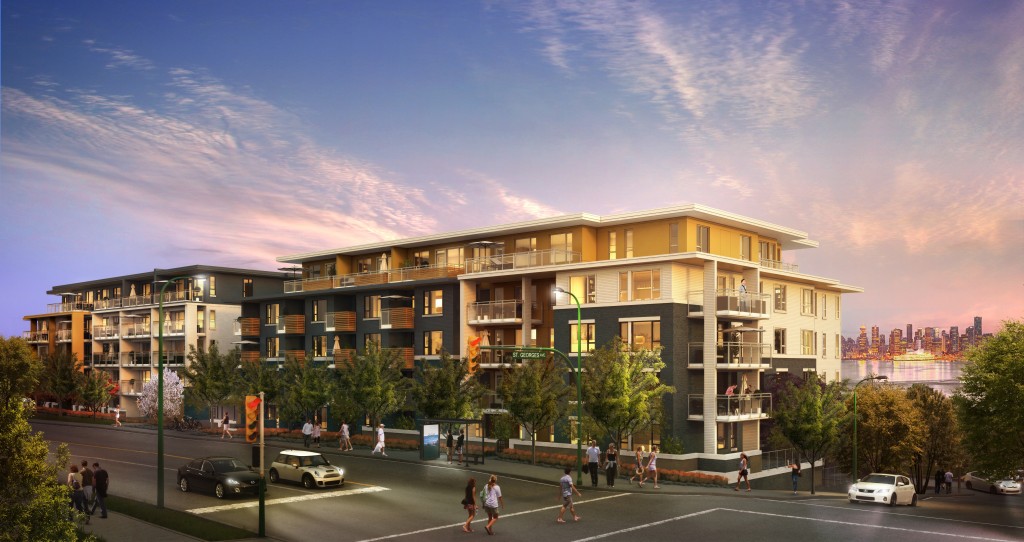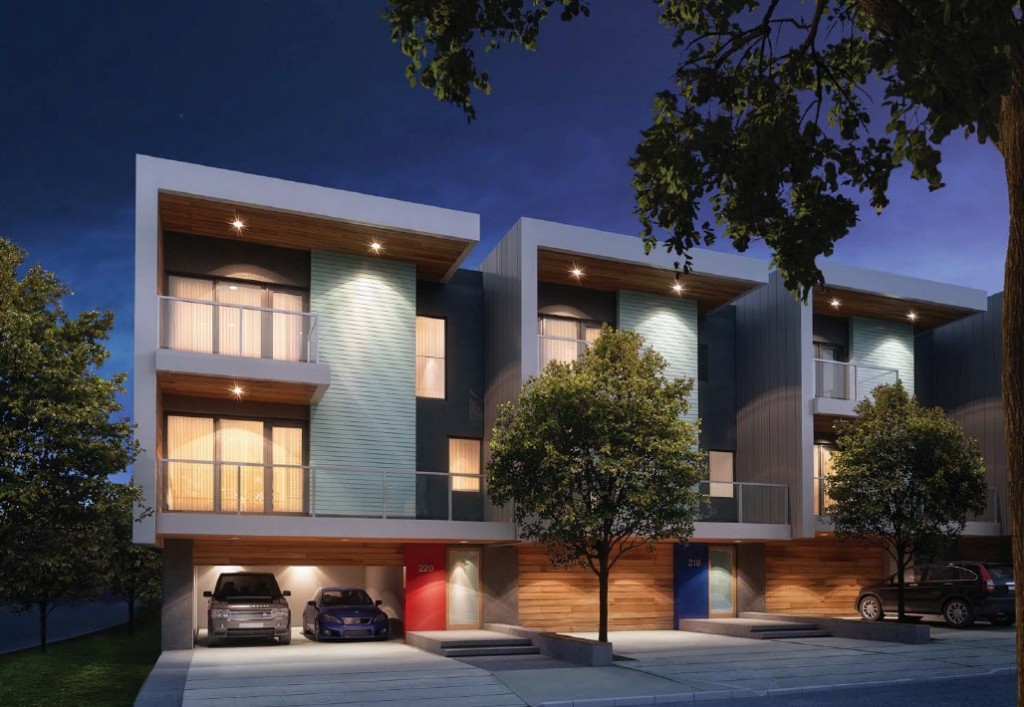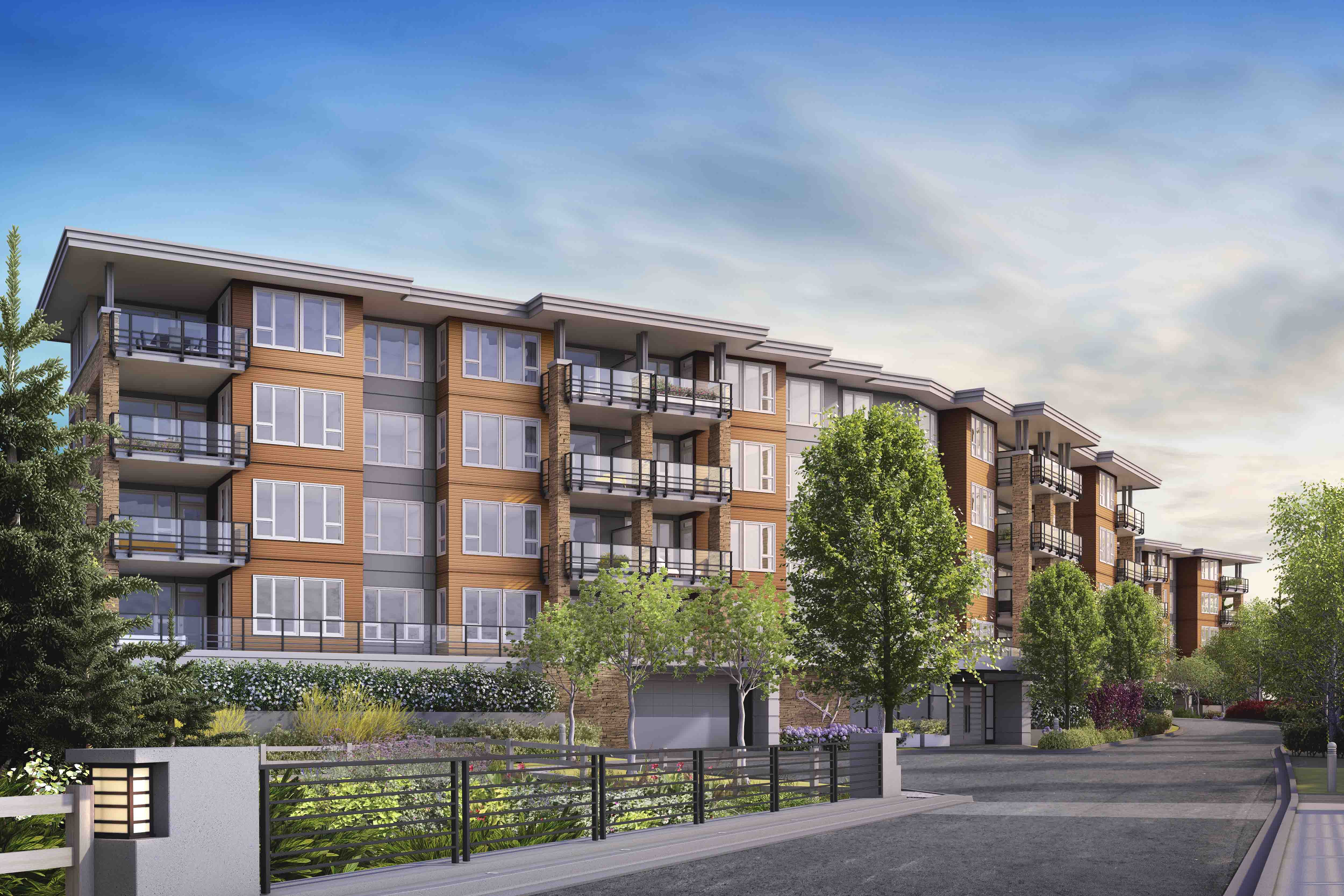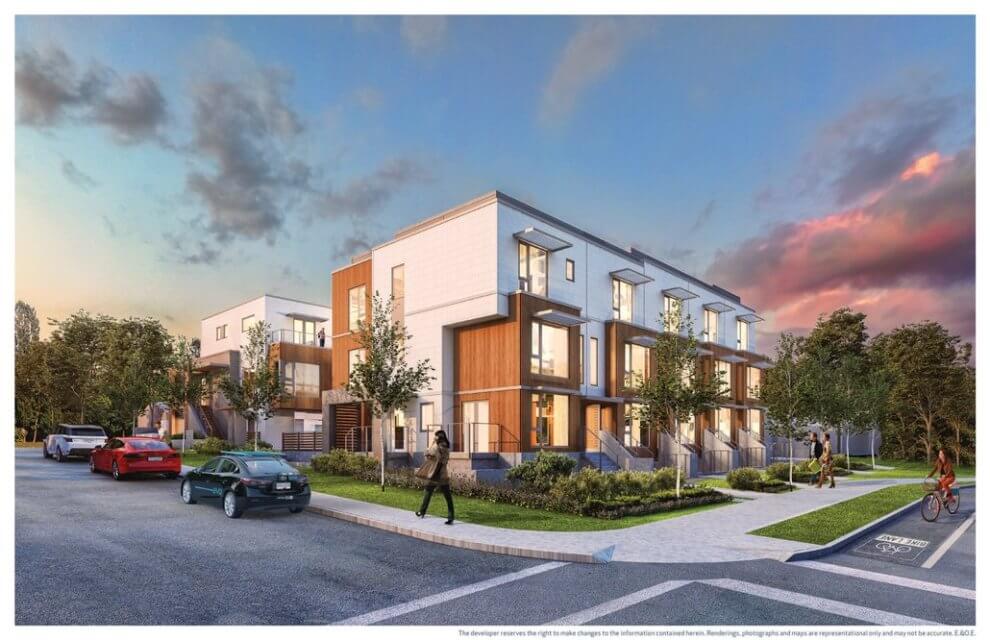
Apartment developments like Orizon on Third in Lower Lonsdale continue to be popular with end users and property investors as rental rates sit well below 1% on the North Shore.
When it comes to looking for an apartment, you couldn’t do much worse than the North Shore, according to the Canada Mortgage and Housing Corporation.
The District of North Vancouver, the District of West Vancouver and City of North Vancouver ranked second, third and fourth respectively for the lowest vacancy rates in the region, according to the housing authority’s 2016 survey.
The District of North Vancouver’s vacancy rate sits at 0.1 per cent, down significantly from 0.5 per cent in 2015. The District of West Vancouver’s vacancy rate came in at 0.2 per cent, also down from 0.5 per cent last year. North Vancouver City fell to 0.3 per cent from 0.4 per cent last year.
The only jurisdictions with lower vacancies were the University Endowment Lands at UBC and Delta, both of which registered zero vacancy.
Average rental costs meanwhile have spiked about 6.7 per cent across the region in the last year. West Vancouver had the highest average rent at $1,746.
The trend is, in part, tied to higher employment and population growth in the Metro Vancouver region with hardly any new rental units being built, the report notes
“Strong demand for rental accommodation in Vancouver outpaced additions to supply, pushing rents higher and vacancies lower for purpose-built and condo rental apartments,” said Robyn Adamache, principal of market analysis for CMHC’s Vancouver branch.
New rental housing starts climbed over the survey period but the city actually experienced a net loss of purpose-built rental units.
Increases in the selling prices of entry-level homes is also indirectly impacting the rental market by preventing would-be buyers from moving up the continuum, the report suggested.
The outlook is bleak but not surprising, said Don Peters, housing advocate and chairman of the North Shore’s Community Housing Action Committee.
“I just think it’s a sign of the times. I think there’s no changing where we’re headed,” he said.
Typically three per cent is considered a healthy vacancy rate, according to Brian Clifford, policy analyst for the BC Non-Profit Housing Association, although Metro Vancouver has never once had that rate since data collection began in 1971. Almost of all of the existing purpose-built rental stock was constructed between the 1950s and early 1980s when the federal government offered tax incentives to developers. As the population grew and demographics changed, it’s left today’s renters vying for the same old stock.
“What you’re seeing is huge lineups for any vacancy that comes up. Competition for those units is very, very, very severe,” Clifford said.
While trying in vain to find an affordable home is psychologically stressful, it also puts a strain on the wider economy, Clifford said, as labour markets rely on healthy rental markets.
The popularity of room letting websites like Airbnb and vacant condos are certainly contributing to the problem, Clifford said, but in total they’re probably smaller factors than the lack of new units being built over the last 30 years.
Both Peters and Clifford agree that more rental stock is direly needed.
Municipalities can help woo more developers to offer up creation of purpose-built stock by doing things like increasing density, waving development cost charges or community amenity contributions, reducing parking requirements, prioritizing processing of purpose-built rental applications or they can lease or sell municipally owned land for affordable housing, Clifford said.
And the federal 2016 budget did see a return of the feds to housing with a new program called the Federal Affordable Housing Financing Initiative, which is set to provide 100 per cent financing for affordable rental projects. It should be a good policy but it’s only budgeted for five years, Clifford said, making it susceptible to being a casualty of the political cycle.
New rental projects tend to face community opposition going through the “obstacle course” of the approval process, Peters noted, but, he added, it’s not realistic to think we can simply stop building new housing supply.
“There is simply no holding back the redevelopment because a lot of stock is simply decaying under our feet and because people want to live here,” he said. “I think the best we can do as citizens over here is be thoughtful about the redevelopment of our North Shore.”
– See more at: http://www.nsnews.com/news/north-shore-rental-vacancy-rates-among-worst-in-region-1.4682828#sthash.0I52594D.dpuf


